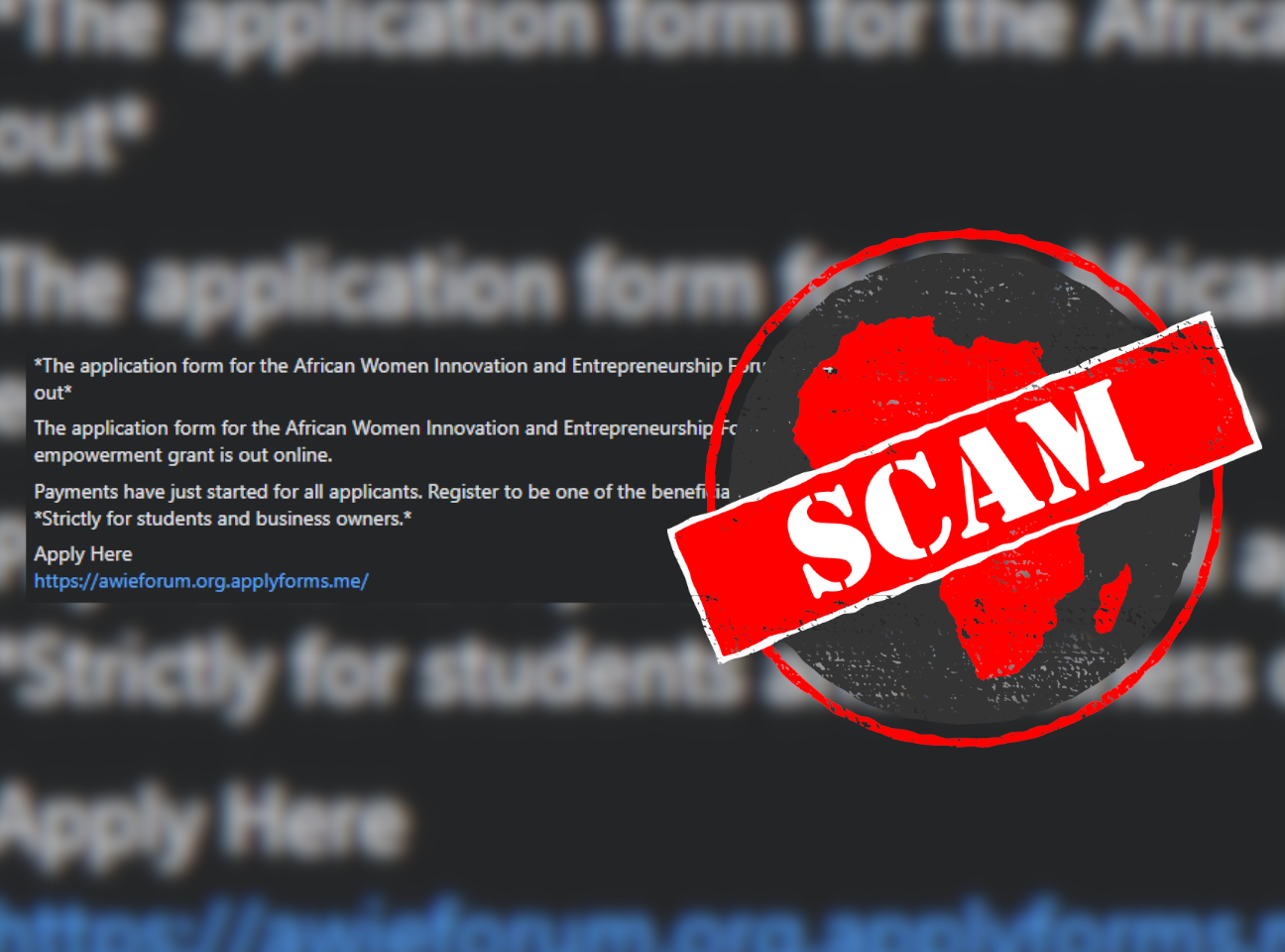IN SHORT: This website claims it will fund at least 885,000 African women over six months to "empower" them. But it is just another fraudulent link that may try to steal your personal information.
A website claiming to offer grants to African women for innovation and entrepreneurship is attracting attention on social media.
It says it aims to fund at least 885,000 African women over a six-month period.
The unprofessional-looking website – awieforum.org.applyforms.me – has a home page headlined: “Africa Women Innovation & Entrepreneurship Forum.”
It provides an “application form” that asks for personal details such as name, telephone number and country of origin.
The link to the website has been posted in various Facebook groups here, here and here.
But is the website and the information it provides about the funds legitimate? We checked.

Signs of deceptive link
When we first clicked on the website, our antivirus programme warned us that it was “malicious”. This is the first indication that it could be a phishing attempt. We opened it anyway to find out more about the funds.
After filling in the details, a message popped up saying that we had been approved for the “Africa Women's Innovation and Entrepreneurship Forum 2024 grant”.
It added that the grant would be “immediately available” if we shared the information with “15 friends or five groups on WhatsApp”.
This is an example of engagement bait – social media posts that ask people to interact by liking, commenting or sharing.
While this increases the reach of the post, it ultimately offers no reward and certainly no grants to anyone. Such links may also be attempts to steal personal information, which could lead to crimes such as identity theft.
The website has no link to the Africa Women Innovation and Entrepreneurship Forum (AWIEF), a pan-African women's economic empowerment organisation that does exist and supports women entrepreneurs in Africa to grow their businesses and fulfil their potential. In fact, AWIEF has warned about scammers using its name.
“Kindly refrain from acting on, disclosing information or forwarding the message,” reads part of a warning from the organisation.
For more information on how to avoid such links, particularly on Facebook, read our guide here.
Republish our content for free
For publishers: what to do if your post is rated false
A fact-checker has rated your Facebook or Instagram post as “false”, “altered”, “partly false” or “missing context”. This could have serious consequences. What do you do?
Click on our guide for the steps you should follow.
Publishers guideAfrica Check teams up with Facebook
Africa Check is a partner in Meta's third-party fact-checking programme to help stop the spread of false information on social media.
The content we rate as “false” will be downgraded on Facebook and Instagram. This means fewer people will see it.
You can also help identify false information on Facebook. This guide explains how.


Add new comment